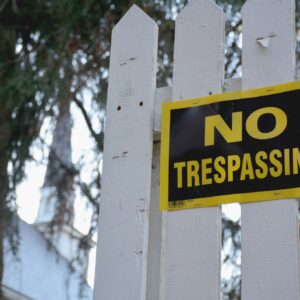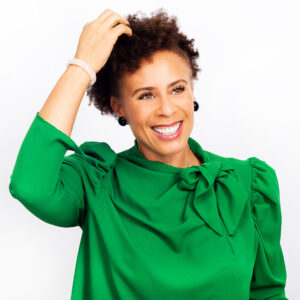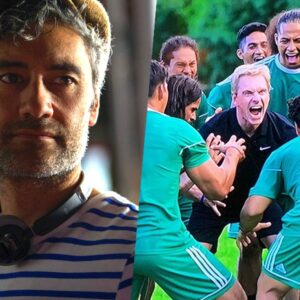
BRANTFORD – Visitors wishing to learn more about the impact of the residential school system gathered at the Woodland Cultural Centre for another Survivor Series with two Mohawk Institute survivors.
Event Co-ordinator Lorrie Gallant explained during the event on Monday, January 16, that this is a very special sequence of the series.

“This is the very first time we’ve had two survivors,” said Gallant. “It’s very emotional, and it’s a smaller group today so it makes it that much more intimate,” she said.
After renovations began on the Mohawk Institute building, Gallant explained that they were in need of something other than tours; and it was decided that the Survivor Series was the best route to take.
“It gives the survivors the opportunity to share their story and for the audience to ask questions, so I think we’ll keep on doing it until we can open up the building again because they have been so successful,” she said.
Mentioning that the Survivor Series has been very successful, Gallant believes that visitors leave with a more personal and emotional understanding of the trauma associated with the “Mush Hole”.
“Bud and Roberta are very open about their experience,” said Gallant. “They are both very open about their abuse — their sexual abuse — and so this really hits you hard. Especially because they were only nine years old, seven years old; they were just babies when all of that happened to them,” she said.
As Gallant mentioned, both Bud Whiteye and Roberta Hill were invited to share their emotional stories on stage before an audience of mixed backgrounds, as well as answer questions.
Whiteye is of Delaware background and began his story by explaining that he lived in Chatham, Ont. On his way home from his grandmother’s house with his three brothers and one sister, a black car pulled over to ask if they needed a ride. They declined as their fathers house was in sight, but those within the car continued to badger them and wear them down with promises of ice cream and jello. This is how Whiteye found himself taken to the Mohawk Institute.
“I could tell I was kidnapped by the fact that they didn’t have my name already,” said Whiteye. “Only word I can think of for [what they did] is ‘kidnapped’.”
Hill on the other hand is Mohawk and from Six Nations. She explained that she comes from a family of 14, but her father passed away in 1954. This left her mother to care for her and her seven siblings that still lived at home. Unfortunately her mother fell ill and was hospitalized while she and her siblings were forced to attend the Mohawk Institute.
“I remember it being really cold,” said Hill. “We had absolutely no idea where we were going or what it was.”
Whiteye and Hill both told stories of how they weren’t allowed to see their siblings based on gender, and they both had their own takes on the cuisine.
“I can remember sitting in the dining room and the little guys talking about there being worms in the mush,” Hill said. “I would say ‘I don’t have anything, there’s no worms in my porridge,’ and the girl beside me said ‘well what’s that?’ And I looked at it, and it probably was worms,” she said.
With worms in the mush, Whiteye recalled many of the students including himself would visit the nearby dump to augment their meals simply because they were starving.
“If you’re hungry you’ll find something to eat I guess,” Whiteye said. “If you were as hungry as we were, you’d probably go to the dump too. Especially with no access to anything else.”
After years of living without the much needed love and nurturing from their families, both Whiteye and Hill overcame years of physical and sexual abuse from the institutes headmaster.
The reaction within the crowd was silence during the time questions were able to be asked as the immensity of the survivors stories was heard loud and clear. Finally, a member of the crowd recalled the headmaster and admitted that although she did not attend the school herself, she feared him as well.
“That’s you seeing him for what he really was,” said Hill to the member of the crowd. “Trying to live under his authority; he was a tyrant, he was an abuser and just a tyrant. But you know, when you live like that and you can’t get away; children can’t really do that much. And when you don’t have any advocates for children — which we didn’t — there was no going anywhere. It was made that way for a reason.”
It is safe to say that those that listened to the stories told by these two survivors were left with more food for thought and better understanding than could be provided in any other way. If you would like to attend or get more information about the series, simply contact the Woodland Cultural Centre @ (519)759-2650.












Write comments bring attention to this. I can’t find historical attendance records for this place. The minimum age of those in the care are never mentioned. My only letter of my past , prior to adoption refers only to “the protestant boys home”. This may not be the Mohawk institute. There might be other places with similar history hidden from the public knowledge.
When the school trip went to see the movie Oliver twist they feared my bad memories and I needed both a permission and chaperone , years after adoption away from government care. Amnesiac drugs and hypnosis dulled those memories . Proving this isn’t possible.
This series needs constant updates of future series participation in print.